How Tom Brady inspired Harry Kane's rise to the top
How Harry Kane's admiration for Tom Brady inspired him to defy the odds and become one of the world's best strikers
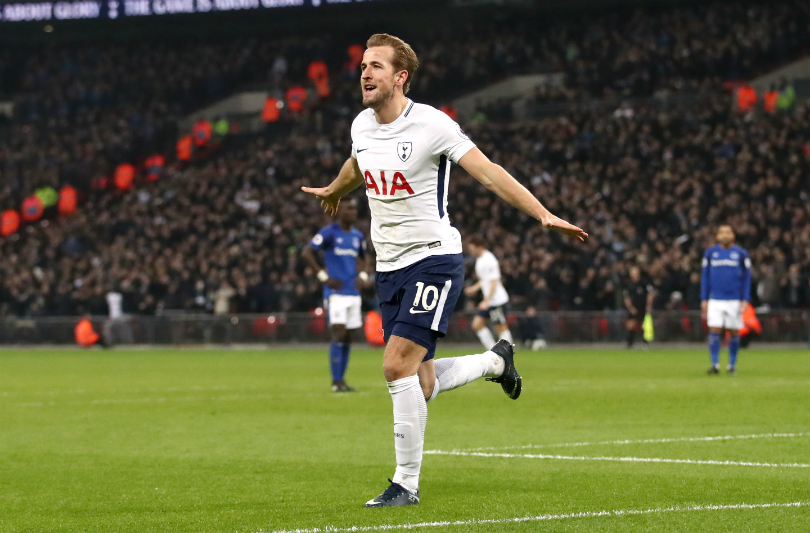
“Poor build, skinny, lacks great physical stature and strength, lacks mobility, system type player who can get exposed when he is forced to adlib and gets knocked down easily,” was the report of one scout.
The subject of that stinging assessment wasn’t Harry Kane, but Tom Brady: the greatest quarterback in American Football history and the spours striker’s idol, and the source of inspiration that has powered the Tottenham talisman to prominence.
Kane was not earmarked for greatness, either, of course. In fact, at one stage he wasn’t even expected to even make the Tottenham first team.
“It was certainly touch and go when he was about 14 whether he’d even be kept on,” Tottenham’s former Head of Player Development Chris Ramsey tells FFT.
“He struggled with his pace a lot in the early days. He always had talent but he was a little kid and traditionally smaller players have struggled to make the breakthrough.”
Slow, slight and unfancied, Kane was just another half-decent young footballer fighting to prove that technique and heart can trump speed and power.
There’s a 16-year age gap between the Chingford hero and his hero Brady. They play different sports, hail from different nations and have never met, but interestingly for Spurs fans, their stories echo one another.
Get FourFourTwo Newsletter
The best features, fun and footballing quizzes, straight to your inbox every week.
Brady has reached sporting nirvana, Kane is chasing it. Hard. Because he wants to be just like Tom.
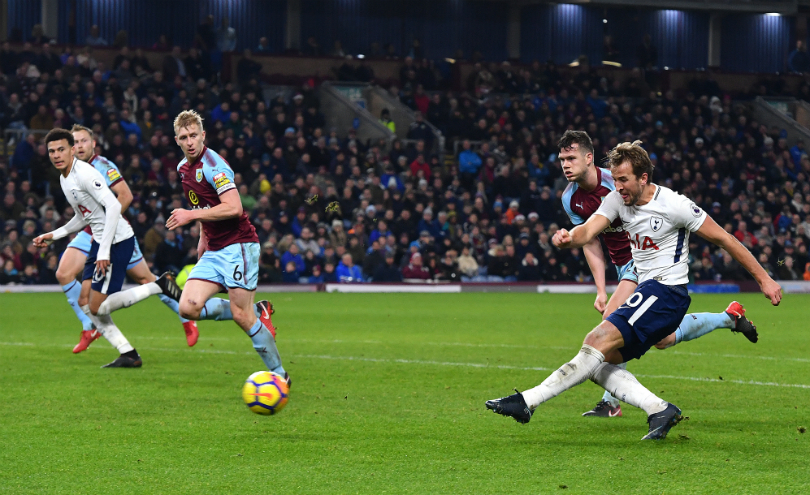
Battling against the dissenters
Kane’s brother-in-law-to-be thought he was just introducing his sister’s beau to America’s game when he invited him to pull up a pew and watch a different kind of football. Little did he know, he was stirring something within. As Kane explained, “Whenever I used to go round my fiancée’s house, he always had it (American football) on, so one day he explained the rules to me, and I’ve ended up watching it every weekend ever since.”
He saw Brady in action, and the New England Patriots’ quarterback stole his heart. When a johnny-come-lately fan pins their colours on one of the most successful teams in NFL history, it’s easy to label them a glory-hunter, but Kane’s fandom went beyond the trophy cabinet - it was personal.
He was inspired by Brady’s remarkable achievements against the odds. The Pats’ ball-slinger was marked down time and again during the embryonic stages of his career for not possessing the superhuman athleticism so hotly coveted by American coaches. Five Super Bowl rings and countless records later, Brady has quite emphatically silenced them all.
The Californian’s accomplishments inspired the ESPN documentary ‘The Brady Six’, which profiles the six quarterbacks taken ahead of Brady in the 2000 NFL draft, and analyses why Brady wound up being taken 199th overall.
Kane has watched the documentary multiple times. He can’t get enough of it, and in Brady he sees a kindred spirit, a source of inspiration.
“I’ve probably watched it five to 10 times,” he said. “It’s an inspirational documentary about what he had to go through in his career is kind of similar to what I had as well.”
Kane has been battling the dissenters from an early age. Arsenal welcomed a free-scoring eight-year-old Kane from Ridgeway Rovers into their academy, but let him go two years later. Watford took him on a six-week trial, and after he scored a hat-trick against Tottenham for the Hornets, the north London club took him on aged 11.
Under the tutelage of Alex Inglethorpe, the former Tottenham academy director now at Liverpool, Kane dedicated himself to self-improvement.
In an era when the academy churned out the likes of Andros Townsend, Steven Caulker, Ryan Mason and Tom Carroll, Kane was far from the top of the class.
“When the players reach the under-14s you have to make a decision whether to give them a two-year contract or you release them - it wasn’t a foregone conclusion that he was going to be kept on,” explains Ramsey, now QPR’s technical director. “We decided to keep him because while he was a late developer physically, he was emotionally well-developed.
“He was technically gifted, had a fantastic work ethic and was prepared to listen, learn and take instruction. Most importantly he had a belief in himself that eclipsed his ability at the time. He knew people doubted him, but he didn’t for one second think he wasn’t good enough.”
The academy coaching team of Inglethorpe, John McDermott, Tim Sherwood, Les Ferdinand and Ramsey set about developing Kane the footballer, and Kane the athlete.
By his 16th birthday in July 2009 he signed scholarship terms with his local club.
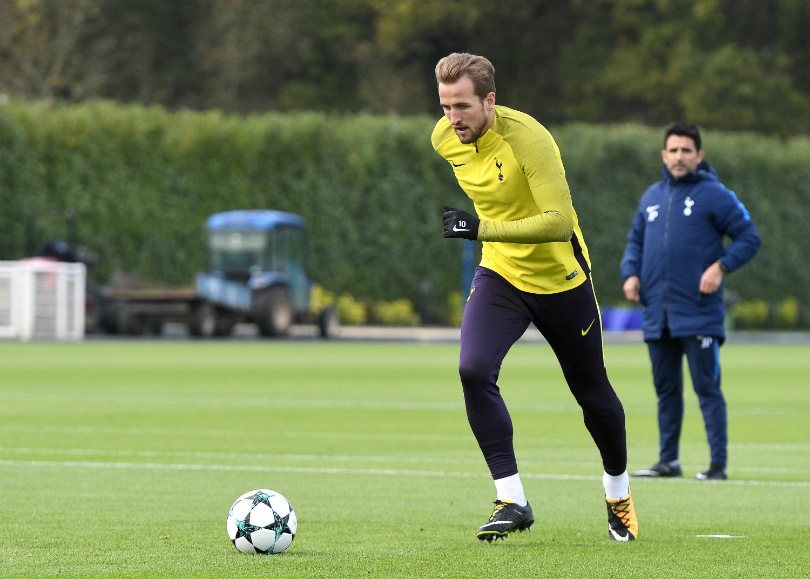
“What I lacked in skills, I tried to make up for with a work ethic”
Brady experienced similar struggles during his formative years at Junípero Serra High School in San Mateo, California.
Despite being big – 6ft4in at 18 – Brady felt small among his peers, later recounting, “The thing I remember most about those days is how many of the teammates I played alongside were just plain better than I was – faster, stronger, with superior natural physical abilities,” he says in his book, [i]The TB12 Method: How to Achieve a Lifetime of Sustained Peak Performance[/i].
“I always felt I was being left behind. However, what I lacked in skills, I tried to make up for with a work ethic.”
Brady never developed into a blue-chip recruit so his dad made his own highlights tape and sent it to colleges. The University of Michigan was the only team that sent a recruiter, Bill Harris, to see him, and he offered the young Brady a scholarship.
This unshakeable determination strikes a chord with Kane, who was sent out on loan to Leyton Orient, Millwall, Norwich City and Leicester City between 2011 and 2013. The England captain experienced varying degrees of success in the muck and nettles of the Football League.
He struggled to break into the starting line-up at Carrow Road and The King Power Stadium, raising question marks about this ability, but as one of his former teammates recalls, his spell in the lower echelons helped toughen him up.
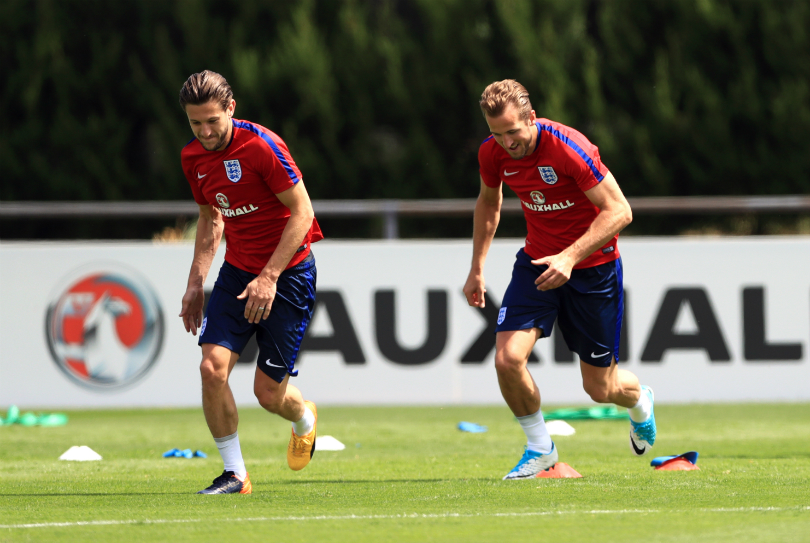
“Harry Kane was a young boy when he came here,” says Terrell Forbes, who played with a 17-year-old Kane for Orient six years ago.
“I was a senior pro with more than 400 games under my belt - he wasn’t going to get any change out of me, but when he got smashed he dealt with it.” And even back then he was setting the example on and off the field.
“In terms of ability, I wouldn’t say he stood out, I certainly didn’t think he was going to be a star, but there were moments where he’d do something and you’d go ‘Woah!’ We were playing a small-sided game and he scored an incredible overhead kick in training and everybody was talking about it.
“He’s gone on to achieve what he has because he’s so disciplined - he’d always have an ice bath and stretch after training.”
By the time Brady got to college in 1995, his recruiter Harris had left, along with the head coach and quarterback coach, so he had to prove himself all over again. He kept getting stuck behind newer, flashier recruits and began to lose hope until the University of Michigan’s sports psychologist Greg Harden gave him a piece of advice that still resonates with him today.
“Do the best you can with those [opportunities] that they give you. If you do anything less, then shame on you,” explained Brady.
“His words further jumpstarted my own competitiveness. They empowered me, actually – now I had a plan.”
By 1999 Brady was the starting quarterback and led the team to victory in the Orange Bowl over Alabama.
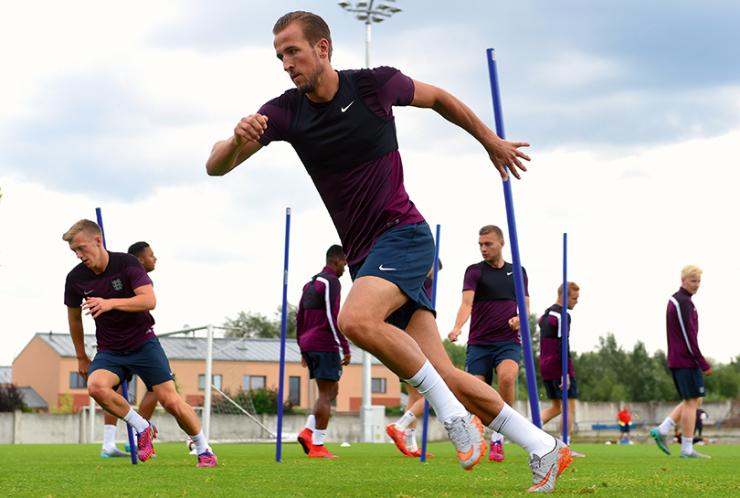
“He’s obsessed with becoming the best possible version of himself”
Fast-forward 12 years and Kane had returned to White Hart Lane from his loan spells with a bachelors degree in grit from the school of hard knocks and ready to test himself against the Premier League’s elite.
Tottenham were a club in transition. In 2013 the club sacked Andre Villas Boas after a 5-0 hammering by Liverpool - the club's worst home defeat in 16 years.
Sherwood, who had helped nurture Kane’s imperfect talent, was handed the chance to prove his worth at Tottenham by chairman Daniel Lev and he, in turn, gave the young striker his first Premier League start.
The Spurs faithful might belt out choruses of 'He’s one of our own' now, but they weren’t universally pleased to see him take the place of Roberto Soldado, the club’s £26 million record signing from Villarreal.
“When he first got into the team he was coming on for Soldado and the fans weren’t having it,” recalls Ramsey. “They were singing Soldado’s name every time he made a mistake. For him to get through that and continue to excel is testament to his strength of character.”
It wasn’t until Mauricio Pochettino arrived in the summer of 2014 that Kane really started to flourish, getting a decent run in the side, trusted with the responsibility of leading the line.
Since the Argentine’s arrival, he’s scored 107 goals in 153 games for Spurs, winning two consecutive Premier League Golden Boots, and bagging 12 in his first 23 England caps.
An astonishing 2017 for club and country – 44 goals in 39 appearances by mid-November – fully justified his shortlisting for the Ballon d’Or. Former teammate Mason believes Kane’s rise owes much to self-analysis and work ethic.
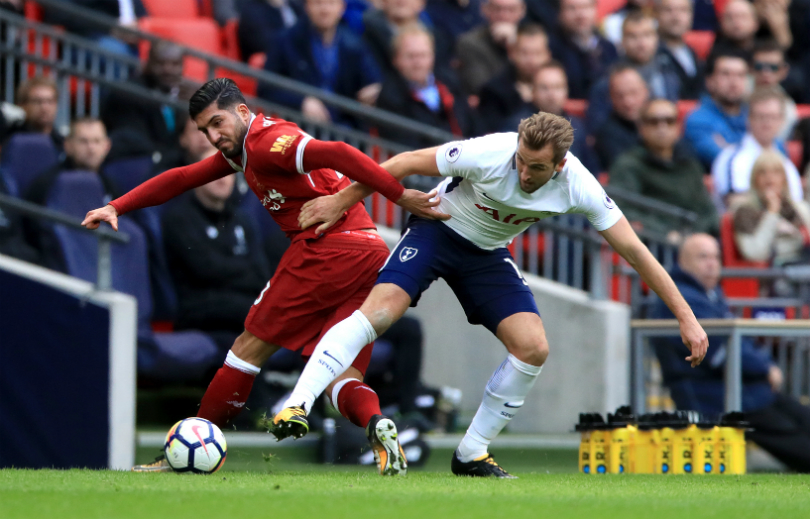
“If you’d seen Harry when he was 19, 20 you would have looked at him and gone ‘he’s a bit heavy he’s not really got that turn of pace over five yards’ – and Harry realised that,” said Mason during an appearance on Sky Sports' The Debate.
“He’s studied his game and I look at him now and from a physical point of view I don’t really think there’s a weakness there – and that is off the back of him putting in the hours in the gym, on the training pitch, eating the right foods, not drinking alcohol, just being obsessed with making himself the best possible version of himself.”
If Kane had to be patient waiting for this chance, Brady had to show the stoicism of a wildlife photographer before getting his shot at the NFL.
“Very skinny and narrow,” his scouting report read. “Can get pushed down easily. Lacks ability to avoid the rush. Lacks a really strong arm. Can’t drive the ball down the field and does not throw a really tight spiral.”
He was passed over by every team in the League at the Draft until his name was called in the sixth round, selected by the Patriots with the 199th pick. As the fourth-string quarterback he would work every Friday at 6am with strength coach Mike Woicik on speed and footwork drills to close the gap.
In 2001, during his second season, starting quarterback Drew Bledsoe suffered a catastrophic injury. Brady got his chance and took it, leading the Pats to Super Bowl success. Now 40 years old, 16 years later, Brady is a five-time Super Bowl champion still going strong into his forties.
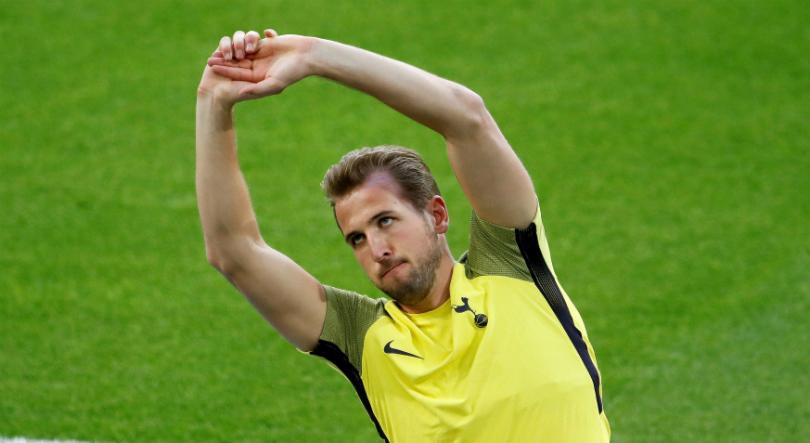
“Becoming the greatest of all time - that’s what I want to achieve”
And this is where the comparisons between Kane and Brady’s stories end. For now, at least. The American superstar has been there, done that, got the five t-shirts. Kane, on the other hand, is at the beginning of his journey – hungrily chasing major honours to add to his growing reputation as a world-class striker.
In he meantime, his admiration for the American continues to grow – especially after Brady’s most recent Super Bowl victory in February. The Patriots were losing 28-3 to the Atlanta Falcons and Brady put in an MVP performance to bring the team back to win 34-38 – the greatest comeback in Super Bowl history – cementing his legend as The Comeback Kid.
Kane was never in doubt. “My friend was close to going home at half-time and said, ‘there’s no point watching the rest of this’,” recalls Tottenham’s No.10. “I convinced him to stay, saying it’s going to be one of the best comebacks ever. There was no way I was ever going to chance missing a Tom Brady comeback like that. I had belief in his belief.”
Kane feeds off this faith in his favourite No.12, fuelling his own hunger for success. “Tom Brady believed in himself an awful lot and had a vision of what he wanted to do and went and achieved it, probably becoming the greatest player of all time. That’s obviously what I want to go and achieve.” Obviously. “As long as you believe in yourself, like he says, otherwise who else is going to believe in you? I was very determined on what I wanted to achieve, as was he.”
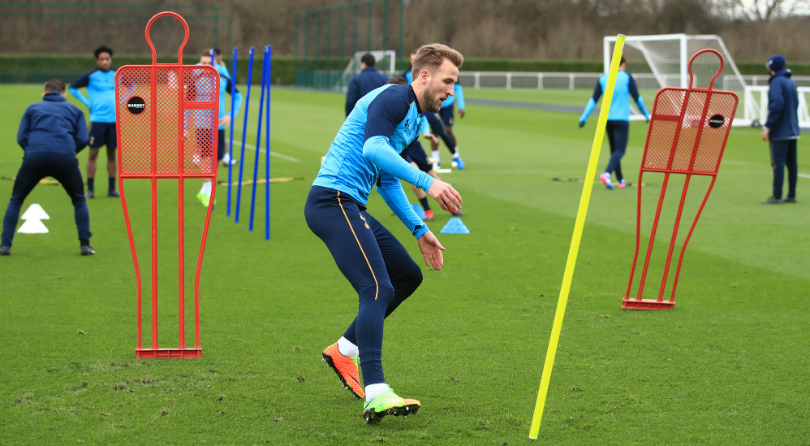
Two successive Golden Boots and the PFA Young Player of the Year are not enough for Kane. He wants more. England’s leading man has set his sights on matching the freakish goalscoring exploits of the world’s best – Lionel Messi and Cristiano Ronaldo – and breaking Alan Shearer’s Premier League record of 260.
Pochettino's fitness regime has helped Kane get in peak physical condition and the Tottenham striker has employed a personal chef in his pursuit of greatness... and fear of losing his job.
“There’s always room for improvement,” explained the England striker. “You’re never going to be perfect in football, you’re never going to get to the stage where, ‘enough’s enough, I don’t need to train hard anymore’.
“You can give someone one game, the opportunity to show the manager that maybe we don’t need Harry Kane or maybe we don’t need Tom Brady. It’s the same approach that I try and take. Every day is another session to prove to the manager that I should be playing.” Sounds familiar. “I always want to feel like I’m the best quarterback for this team. I want to earn it every single day,” said Brady.
In their respective disciplines, one applies the finishing touch, the other supplies the ammunition, but the importance of their roles within the team carry similar weight. They’re the go-to guy, expected to execute under pressure. The player who leads the team to improbable glory when heartbreak seems inevitable.
Brady first proved himself as a match-winner 15 years ago, when he won his first Super Bowl aged 24 under the guidance of New England Patriots head coach Bill Belichick: the longest-serving, most successful coach-quarterback combination in NFL history.
Could the Kane-Pochettino partnership end up having the same effect on the Premier League? Spurs fans can dream, but Kane, wired with a Brady-esque winning mentality, will keep working towards it.
